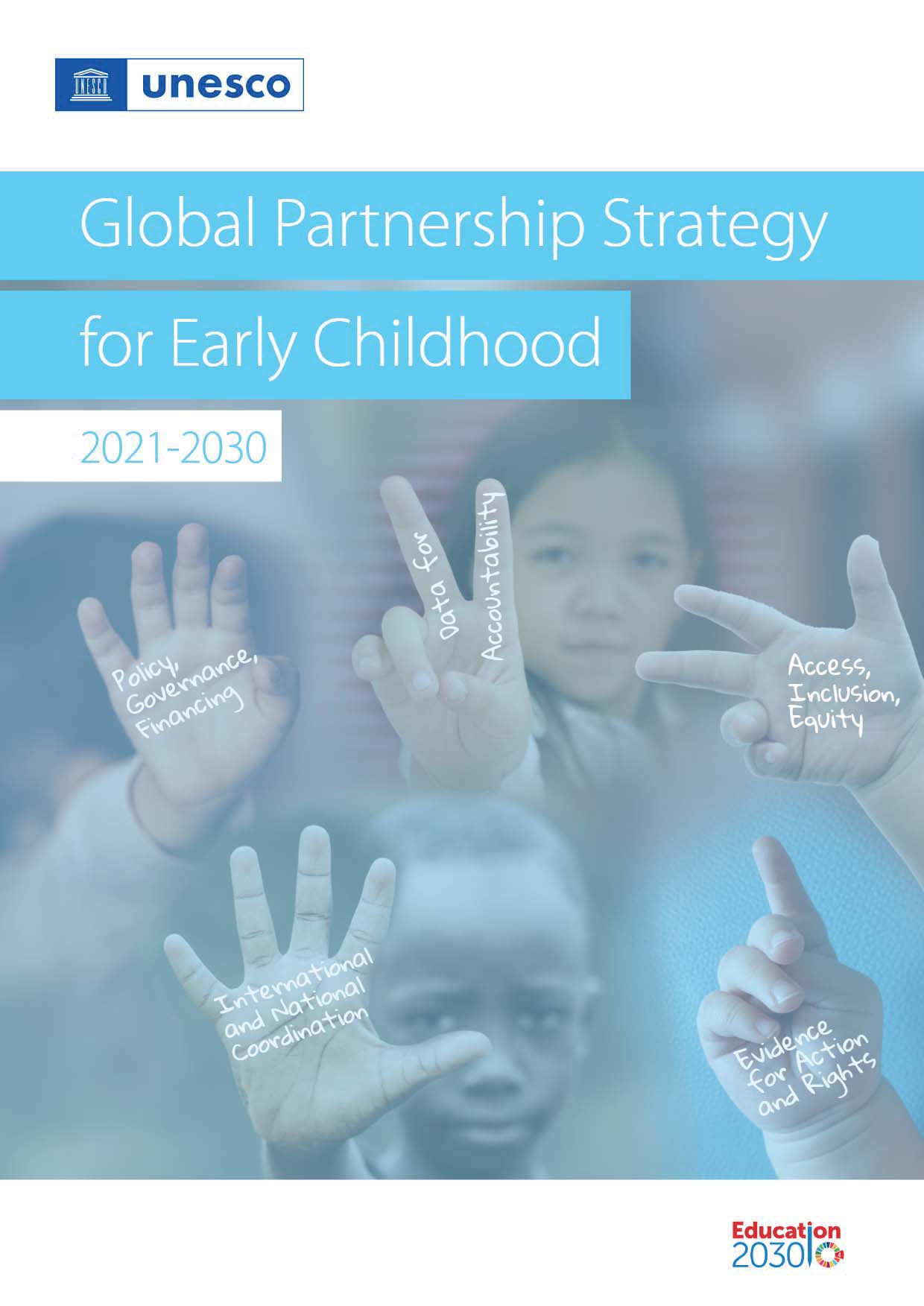Global Partnership Strategy for early childhood, 2021-2030
Executive Summary:
The efficient design and delivery of early childhood policies and services are critical to ensuring long-term learning opportunities and improved learning, behaviour, employment, and health outcomes amongst individuals. Research in neuroscience, developmental psychology and cognitive science has revealed that quality early childhood education, supportive communities and a positive family environment serve as important building blocks to promote healthy development amongst infants and toddlers.
However, the COVID-19 pandemic saw two-thirds of low- and middle- income countries reduce their public education budgets, hence reversing the hard-won gains for children, families, and communities in the field of early childhood education, nutrition, and health. In this light, appropriately designed and implemented policies and services for early childhood care and education (ECCE), early childhood development (ECD) and early childhood intervention (ECI) will enable all countries to protect and guarantee child rights, achieve high rates of return on their investments in child and family development and widen avenues for transforming societies and lives.In this context, through partnerships and broad multistakeholder collaboration, the Global Partnership Strategy for Early Childhood (GPS) was created to counter this negative trend in early childhood and to overcome the reduction of services for health, nutrition, sanitation, and child protection in all world regions. The overall aim of Global Partnership Strategy is driven by the core principle of the 2030 Agenda for Sustainable Development of “leaving no child behind”, by recommitting countries and partners on their earlier promise and ensuring that ECCE, ECD and ECI services are fully inclusive, accessible, affordable, gender-responsive, equitable and developmentally appropriate for each child.
The Global Partnership Strategy has outlined key strategies to successfully harness support to develop well-designed ECCE/ECD and ECI policies and programmes in countries around the five areas: (1) evidence for action and rights; (2) data, monitoring and evaluation for accountability; (3) scaling-up access, inclusion, equity and quality; (4) strengthened policy, governance, financing and advocacy; (5) international and national coordination and cooperation.
Type of document : Evidence/ Policy Briefs and Infographic
Country : Region
Year of publication : 2021
Advocacy : ECD Governance, Policy, and Financing
Publisher :
